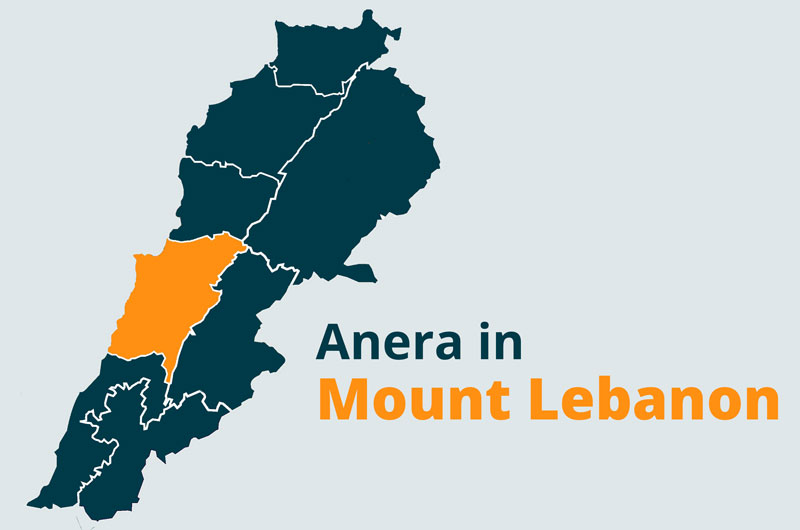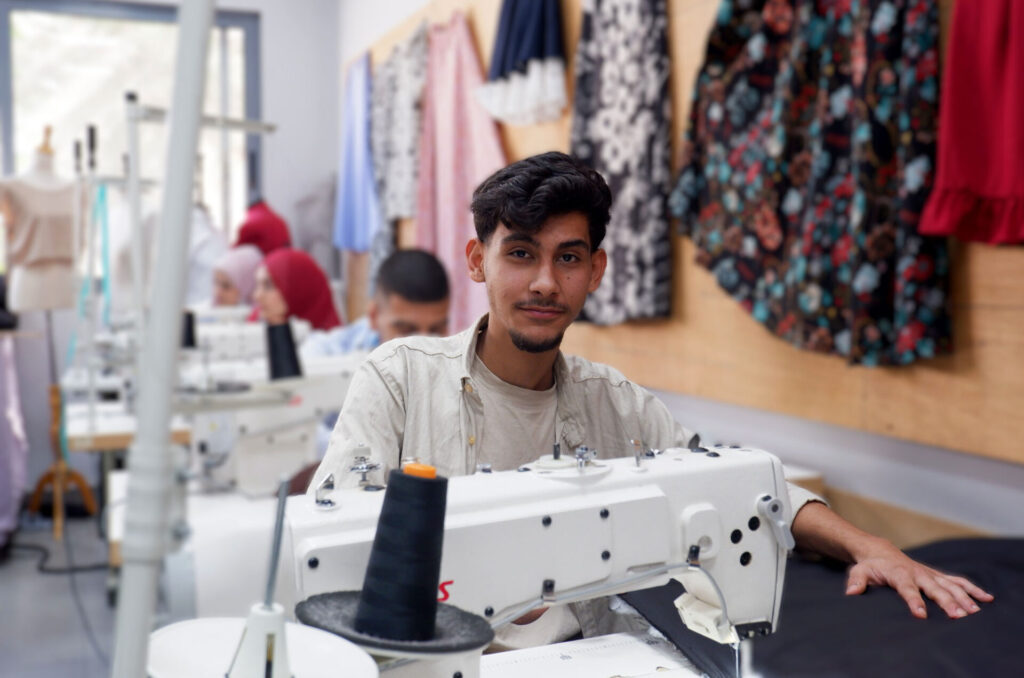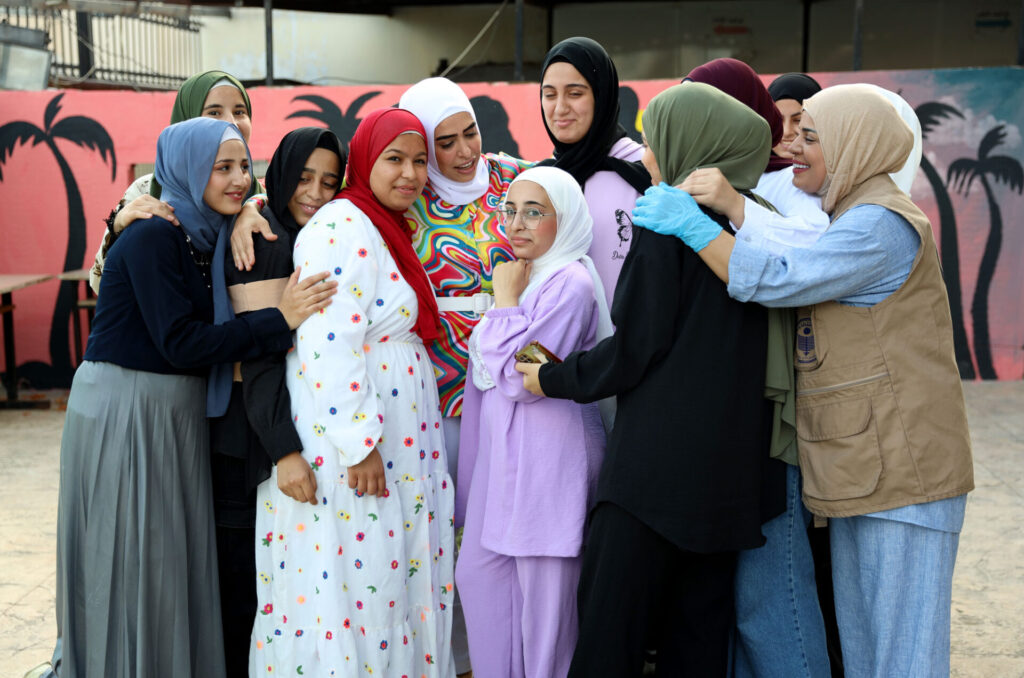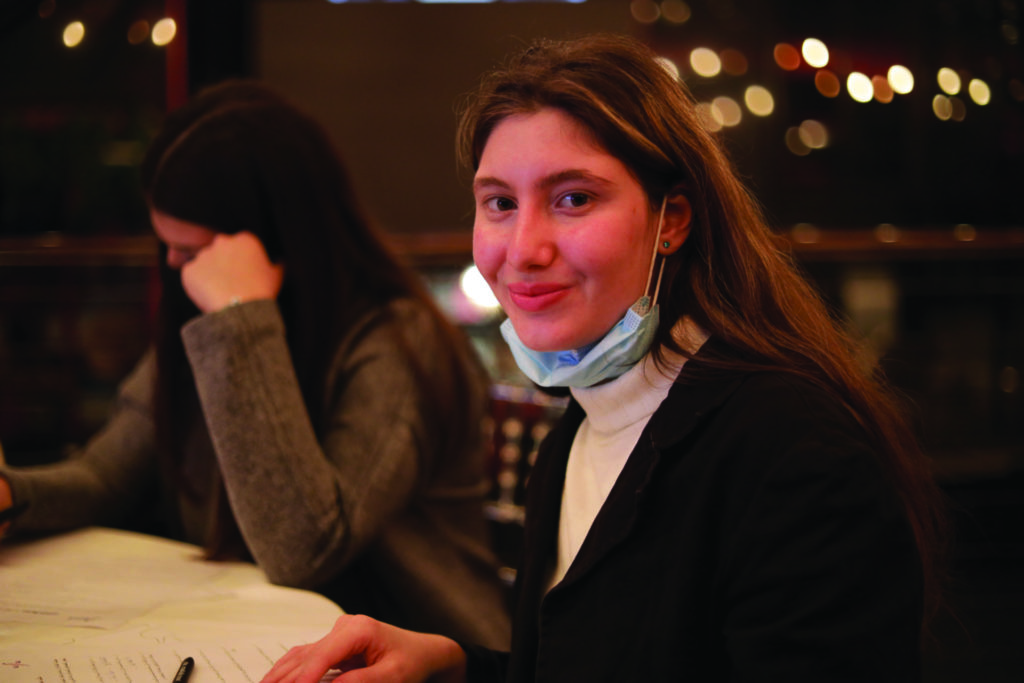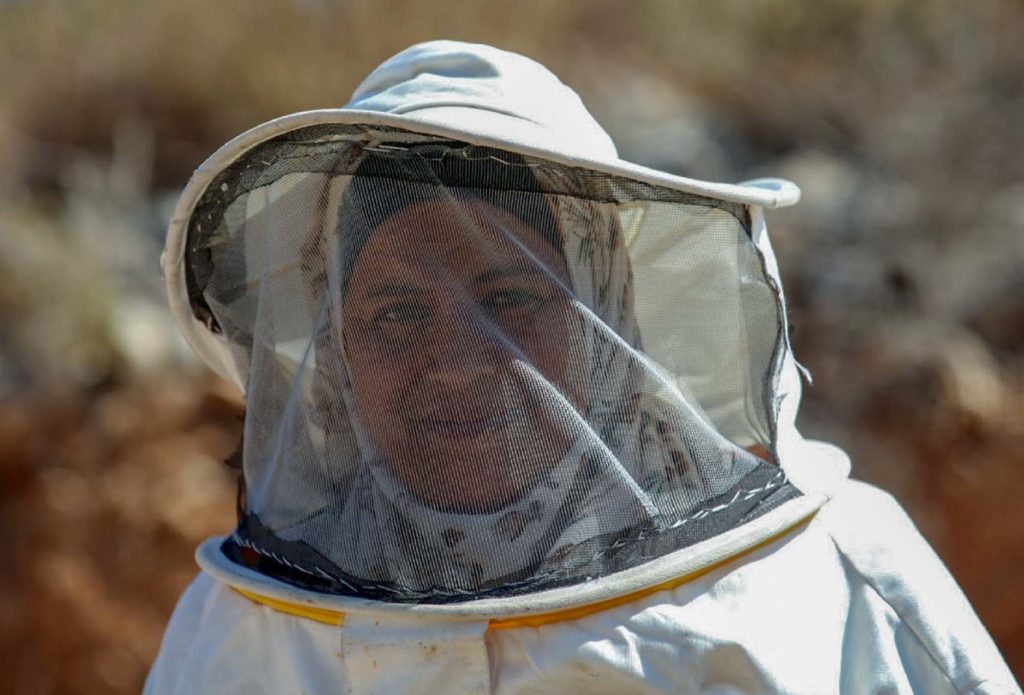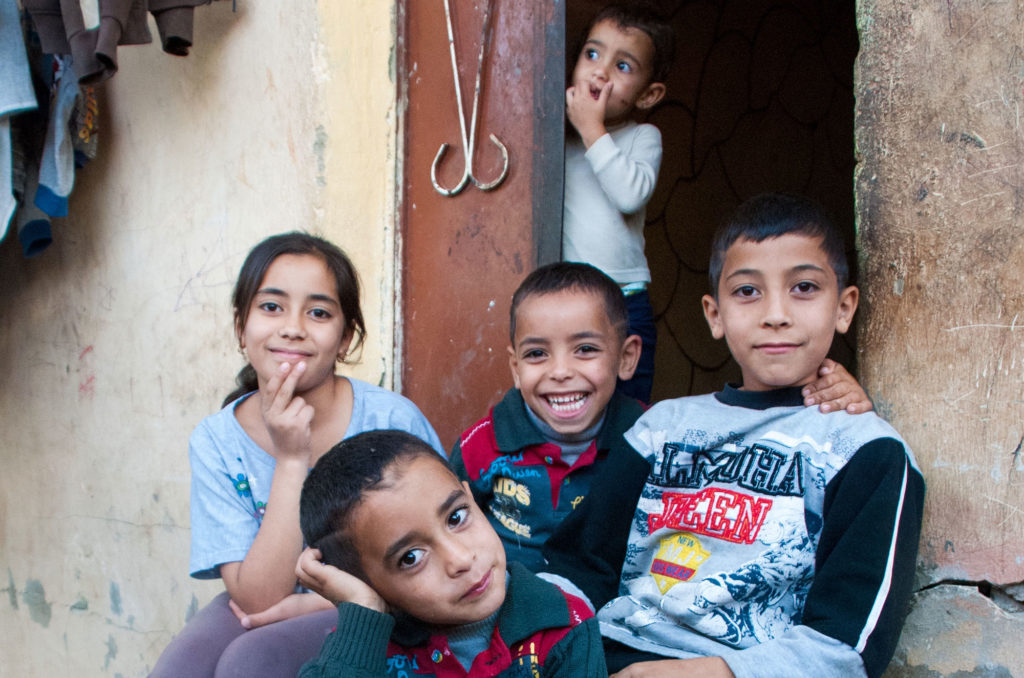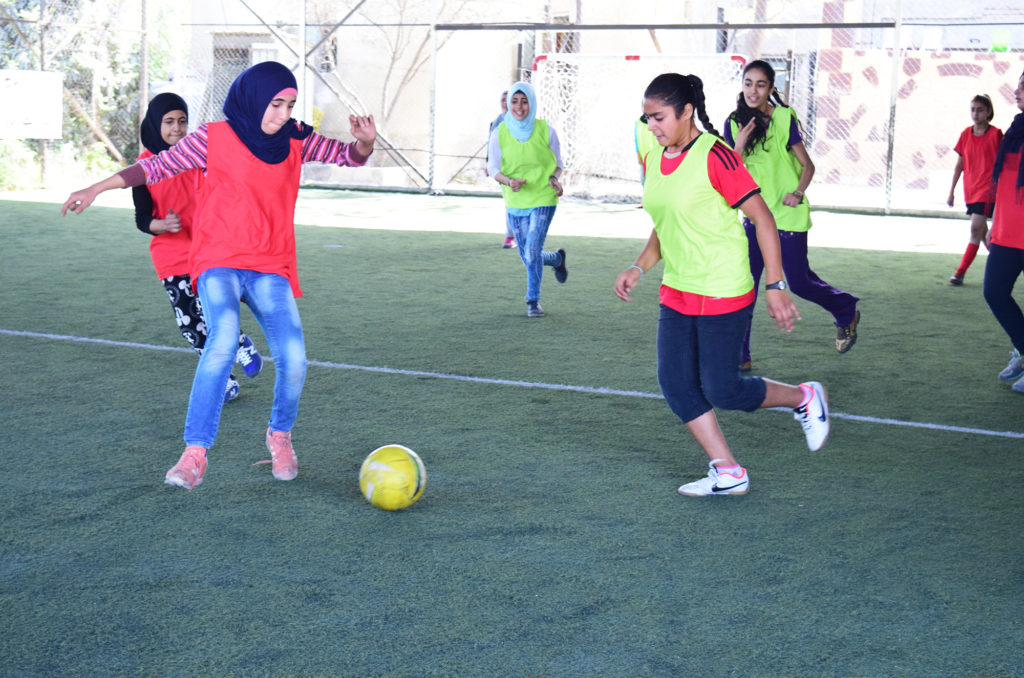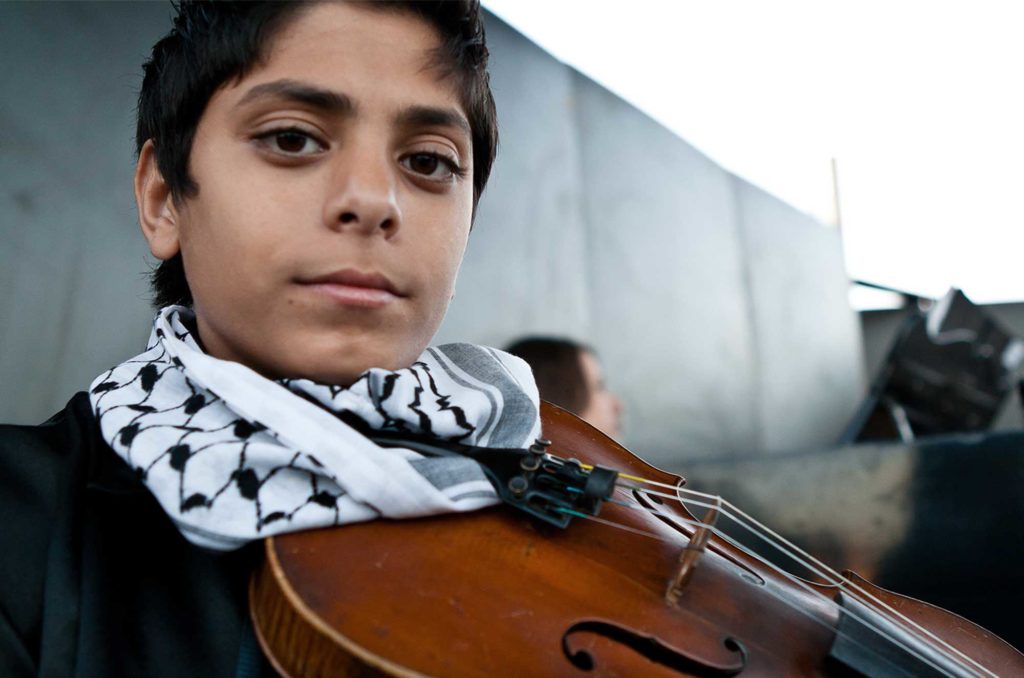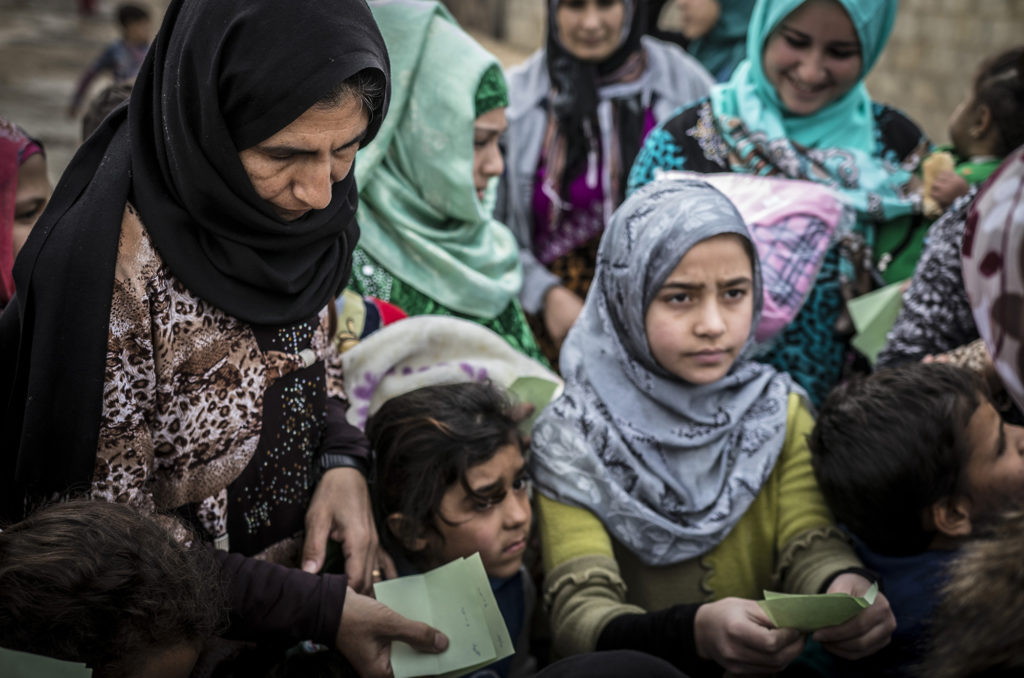Youth Unemployment on the Rise
Since 2019, the economy in Lebanon has collapsed, throwing millions into poverty.
Lebanon has long had the highest rate of Palestinian refugees living in extreme poverty, even before the Syrian refugee crisis and the financial crisis. Many live on less than $2 a day. Now, many more people have fallen into hardship as many formerly middle class Lebanese are forced to compete with the Palestinian and more recently arrived Syrian refugees for the same low-paying jobs.
Meanwhile, vocational training in Lebanon is too often overlooked. UNRWA, which is mandated with providing educational services for Palestinians, only has one technical training center in Lebanon. This facility cannot come close to meeting the needs of the long list of students hoping to get into a vocational program. And many Syrian refugees and Lebanese citizens need quality vocational training programs as well.
Useful Job Training in Lebanon
Anera helps young people gain the skills they need to secure good-paying jobs in desirable fields. Through partnerships with local organizations and international funding, Anera offers a wide range of courses informed by current market needs.
How It Works
-
Formal Vocational Training in Lebanon
Across Lebanon, we work with local implementing partners to offer a wide range of vocational courses in fields with strong employer demand, helping to ensure that students learn the skills that will position them to get hired into good paying jobs. Each year, cohorts of students learn to become electricians, mechanics, nurses, solar installation technicians, farmers and more. Anera partners with local employers to provide paid internships following the coursework, providing practical hands-on experience that makes students attractive to future employers and positions them to succeed in the workplace. Often, these internships lead directly to full time jobs.
-
Non-Formal Skills Courses
Anera also provides non-formal vocational and job skills courses in Lebanon that are shorter and more flexible in nature. These courses are designed to help youth adapt to the rapidly changing labor market and improve their access to further education and livelihoods. The curriculum focuses on improving English, financial and computer skills. These classes reach thousands of students – many of whom dropped out of school many years ago. These students include refugees from Syria and Palestine, as well as marginalized Lebanese teens.
Private Sector Partnerships
Anera works with private sector businesses that provide job placements at their premises or offer rigorous referral plans for course graduates to obtain employment at other organizations in the industry. Anera has established a strong network of respected private sector organizations to provide market-based, up-to-date, competency-based training skills based on existing market needs and employment gaps. These private sector partners include:
Sea Sweet
Daher Foods (Master Chips)
Al Shams Restaurant
Mimosa
Lakkis Farms
Park Innovation
Ain W Zayn Hospital
Labib Hospital
Chtoura Hospital
About Anera's competency-based training courses
Anera's courses prepare students for occupations in the marketplace where there are openings. Using needs assessments, such as studies from the International Labor Organization, we assess the evolving job market and map the most important sectors that have employment gaps. Our short, flexible and practical courses build up youth’s technical skills, while also emphazing other skills that are important in a workplace, such as teamwork. The main course categories are:
-
Agriculture and agrifood courses develop skills in preparing food, such as meat, dairy and poultry, in addition to planting, harvesting and classifying different types of vegetables.
-
Healthcare courses prepare students for professions such as practical nurse, registered nurse, homecare, radiology technicians, biomedical engineers, lab technicians, dental assistant and pharmacist assistant, with a focus on upgrading youth practical skill-sets to prepare them to enter the healthcare job market.
-
Construction courses convey the skills needed for work in professions like electricians, solar panel installers, electro-mechanical technologists, carpentry, machine operators, and more.
-
Education courses convey teaching skills to support teachers at schools, including as shadow teachers.
-
IT and digital skills courses on subjects such as IT and programming, mobile phone repair, graphic design, online revenue channels, web design, digital marketing, networking, and more.
In 2021 - 2023
8,672
youth in Lebanon…
provided with vocational training in employable skills.
2,714
youth graduates...
connected to employment within our network of employers.
22
future nurses...
in Lebanon supported with intensive training scholarships.
JOB SKILLS IN PALESTINE
THE REALITY
In Gaza, where the Palestinian economy is devastated by the blockade, unemployment is among the highest in the world. Even with university degrees, youths are unable to find a job in their field. Similarly, in the West Bank, restrictions on movement and the burden of occupation prohibit the economy from thriving, leaving many young people without hope for the future.
ANERA’S RESPONSE
In Palestine, Anera's People Leveling Up Skills (PLUS) program is a career accelerator giving young people the technical skills they need to begin successful careers. The program is creating opportunities for young Palestinians in Gaza and the West Bank to become software engineers on the global market.
HOW IT WORKS
Anera PLUS helps to close the gap between out-of-work youth and unfilled tech jobs in the region and beyond. With over one million unemployed youth in Palestine, Lebanon and Jordan, and an estimated one million IT jobs expected in the region over the next few years, PLUS+Code is the right program at the right time. The pilot program has given 90 Palestinians in three cohorts the necessary skills to secure well-paid jobs as software developers in the global IT industry. To scale the program, Anera is pursuing a financing model that will ensure sustainability by funding student tuition scholarships through a mix of donations and tuition payments from the learners and employers.

